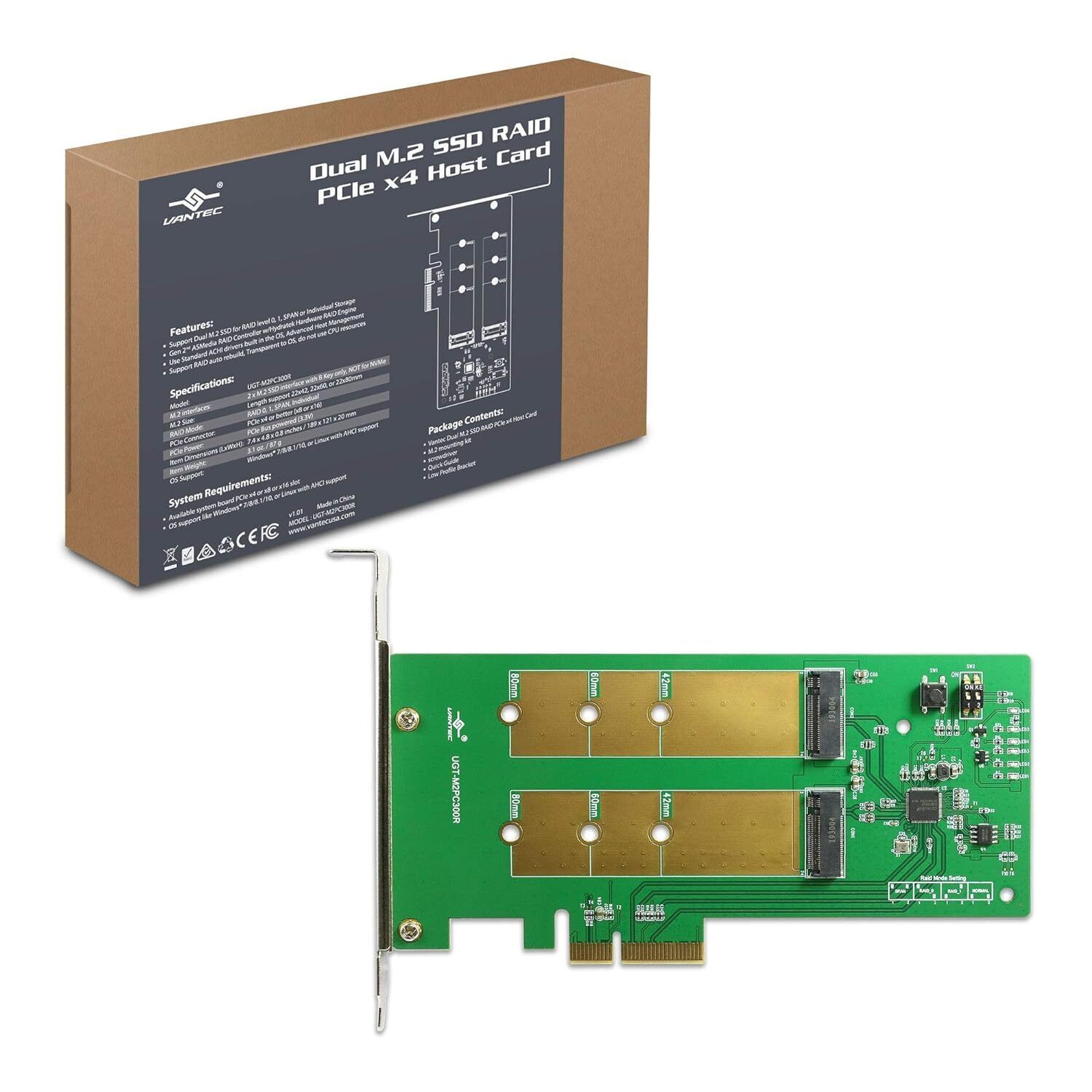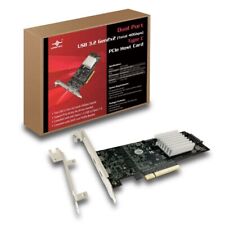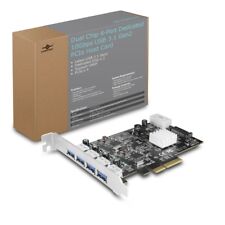Vantec Dual M.2 SSD RAID PCIe x4 Host Card (UGT-M2PC300R), Green For Sale

When you click on links to various merchants on this site and make a purchase, this can result in this site earning a commission. Affiliate programs and affiliations include, but are not limited to, the eBay Partner Network.
Vantec Dual M.2 SSD RAID PCIe x4 Host Card (UGT-M2PC300R), Green:
$73.82
Vantec Dual M.2 SSD RAID PCIe x4 Host Card (UGT-M2PC300R), Green
Item Condition: New
Brand: Vantec
Model: UGT-M2PC300R
Color: Green
Product Dimension: 7.44 x 4.76 x .79
Product Information
- Support Dual M. 2 (2242, 2260, or 2280) SSD for RAID or individual Function; Uses Fast 2nd Gen ASMedia ASM1062R RAID Controller w/Hydratek Hardware RAID Engine
- Design to install without drivers, use ACHI drivers already built into the latest OS; Support PCIe x4 or better slot configuration (include x8 or x16)
- Support RAID 0, 1, SPAN or JBOD (individual); Support automatic, background and off-line RAID rebuild
- Support PCI Express V 3. 0 Specs and is compatible with v2. 0 / v1. 0; Support Serial ATA Rev 3. 2, NCQ, and PMF capability
- RAID transparent to OS and do not use CPU resources; Advanced Heat management using Cooper PCB heat spreader; Simple RAID switch and Multiple LED for Ac

Related Items:Vantec Dual Port USB 3.2 Gen2x2 (40Gbps) Type C PCIe Host Card
$149.99
Vantec Dual Chip 4-Port Dedicated 10Gbps USB 3.1 Gen 2 PCIe Host Card
$99.99
Vantec Dual M.2 SSD RAID PCIe x4 Host Card (UGT-M2PC300R), Green
$73.82
![]()
Documentation
- AIX Local Security Checks
- Backdoors
- CentOS Local Security Checks
- CGI abuses
- CISCO
- Databases
- Debian Local Security Checks
- Default Unix Accounts
- Denial of Service
- Fedora Local Security Checks
- Finger abuses
- Firewalls
- FreeBSD Local Security Checks


